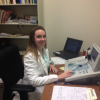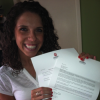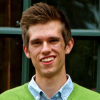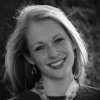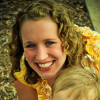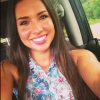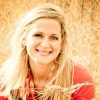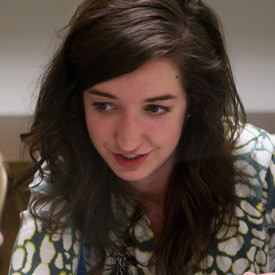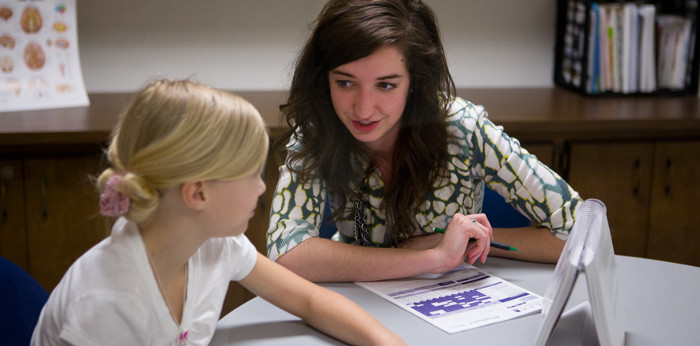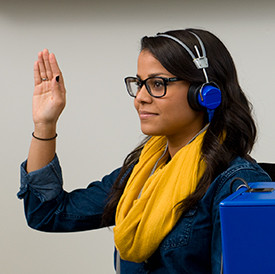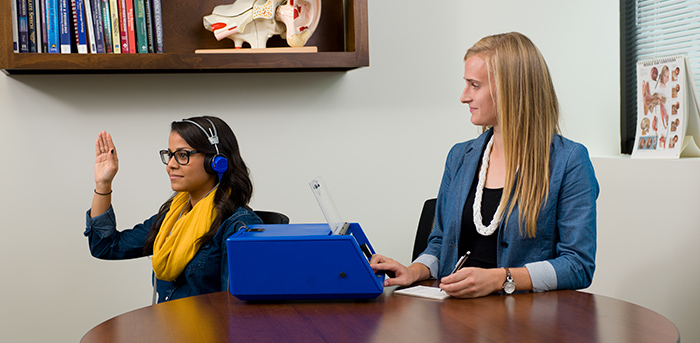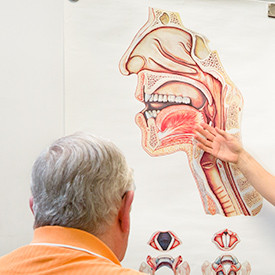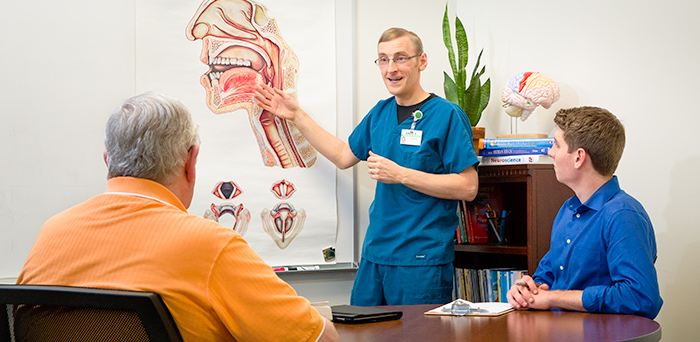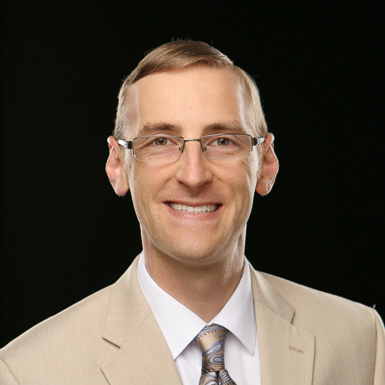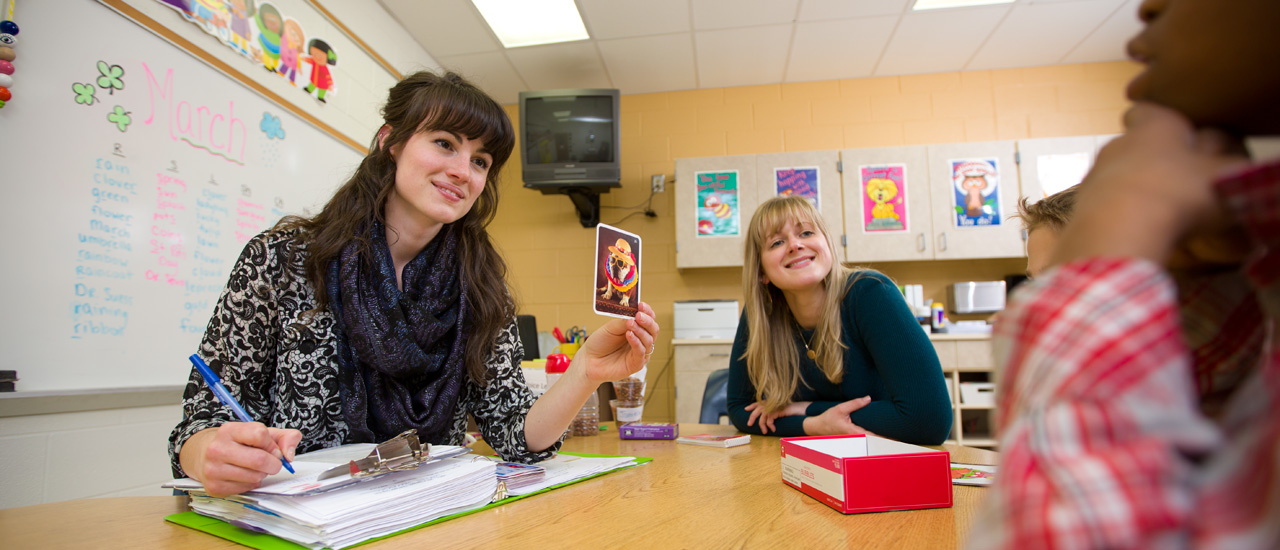
Communication Disorders
Bachelor of Science
Program Overview
Communication disorders is a unique field, combining the rigors of science with the rewards of working with people.
Course content covers the broad scope of normal speech and language development and speech and language disorders, and provides a foundation of math, science and psychology for entrance into a master’s program. BJU alumni have gone on to work in schools, clinics, rehab facilities, hospitals, research labs and many other settings.
Your Future
- Speech-language pathology
- Audiology
- Occupational therapy
- Early intervention
- Reading intervention
- Special education
- Applied Behavioral Analysis (ABA) therapy for individuals with autism
- Teaching English to non-native English learners
After completing a degree in communication disorders, you will be prepared to pursue advance coursework for certification in the following fields:
SLPs and audiologists work in public schools, private schools, speech and hearing clinics, home health agencies, assisted living and acute care nursing facilities, rehabilitation facilities, and hospitals.
Graduates with a bachelor’s in communication disorders are eligible to practice as a speech-language pathology assistant (SLPA) in 29 states.* SLPAs provide screening and therapy services under the supervision of a certified speech-language pathologist. BJU communication disorders graduates have become licensed SLPAs in California, Massachusetts, New Hampshire, New Mexico, Pennsylvania, Texas and South Carolina. Other vocational choices include:
*SLPA requirements for licensure vary by state. You should view the specific licensing requirements for your state. The S.C. Board of Examiners in Speech-Language Pathology and Audiology requires a bachelor’s degree from a regionally accredited institution for licensure as a speech-language pathology assistant.
Career Support
BJU offers students a variety of ways to network with employers and organizations. A multitude of job opportunities are posted each year on Career Central, our online job board. In addition, more than 60 businesses and 150 Christian schools/mission boards/Christian organizations come on campus to recruit students through on-campus interviews and job/ministry fairs.
Career Services also helps students by holding seminars on resume preparation and interview techniques.
Audiology and speech-language pathology ranked in the top 25 for the best health care careers of 2018.
(U.S. News & World Report)
Testimonials
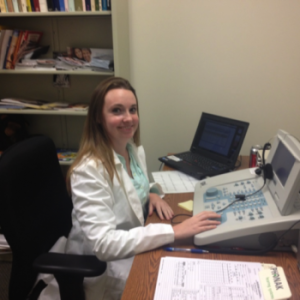
Amy Vocu, ’07
Riverside ENT
I thank God for placing me in a career as an audiologist, where I can help to improve the quality of life of my hearing-impaired patients of all ages.
My time as a communication disorders student at BJU helped to direct and shape my career. Before Mr. Schaedel (my first professor in communication disorders) passed away, he encouraged me to look into pursuing a degree in audiology. I knew that it would be a difficult path and that I would have to continue on to get my doctorate, but he had faith in me. He reminded me that if God directed me into audiology, then He would give me the wisdom, strength and energy to complete my degree.
Mrs. Miller also helped me to develop my academic skills and instilled in me a compassion and drive to meet the needs of my patients. I loved my time and experiences in communication disorders, and we always managed to have some fun along the way.
Learning Experience
From your very first major class, Introduction to Communicative Disorders, to more specialized classes such as Clinical Application of Phonetics, Disorders of Voice and Acquired Language Disorders, you’ll be immersed in a learning environment that challenges you academically. You’ll observe 25 hours of therapy sessions, respond to case studies, complete diagnostic projects, simulate a language disorder yourself (and describe your listener’s reaction), and learn basic American Sign Language.
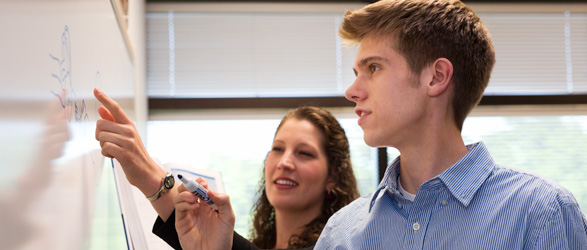
BJU Core
As a future speech-language pathologist or audiologist you will need to understand your role in caring for individuals of advanced age or those with severe disabilities. The biblical and cultural framework provided through the BJU Core will enable you to view your future students, clients or patients, not as mere physical beings, but as individuals fearfully and wonderfully made, created by God for a purpose. They, like you, are image bearers of God.
Electives
There are many electives that can complement your studies in communication disorders. You may choose to focus on other aspects of communication through classes such as nonverbal communication, organizational communication, or conflict management.
If you are exploring bilingual therapy, you could prepare by taking a foreign language. Classes related to voice development, such as voice & articulation or voice lessons for singers, could help expand your knowledge of the voice as well as improve your talents. Of course, as your schedule allows, you may also choose to take extra classes in areas that interest you but are not directly related to communication disorders.
Faculty
David Eoute has degrees in speech, speech pathology as well as communications sciences and disorders. His dissertation work in aphasia treatment inspired him to help patients who have language impairment after experiencing a stroke. He has formed connections in the Greenville community through the local chapter of the National Stuttering Association.
Courses/Objectives
1st Year
2nd Year
- Anatomy of the Speech & Hearing Mechanism
- Normal Language Development
- Hermeneutics: Interpreting the Bible for Life
- Communication Disorders Elective
(3 credits) - Electives
(3 credits)
- The Making of the Modern World
- Clinical Application of Phonetics
- Diagnostic Methods in Speech-Language Pathology
- Ideas & Their Consequences
- English or Writing Elective
(3 credits)
3rd Year
- Language Disorders in Children
- Special Topics in Speech-Language Pathology
- Bible Doctrines
- Oral Communication for the Professions
- Chemistry or Physics Elective
(3 credits)
4th Year
- Applied Statistics-EXP
- Neurogenic Language & Cognitive Disorders
- Psychology Elective
(3 credits) - Electives
(6 credits)
- Program
- BJU Core
- Elective
Program Objectives
Each student will:
- Assess communication development and the effects of communication disorders throughout the lifespan.
- Appraise assessment tools, intervention strategies and professional issues in the field of speech-language pathology.
- Evaluate theoretical constructs and current literature in the field of speech-language pathology.
- Apply knowledge of anatomy and physiology of the speech, language and cognitive processes to clinical practice.
